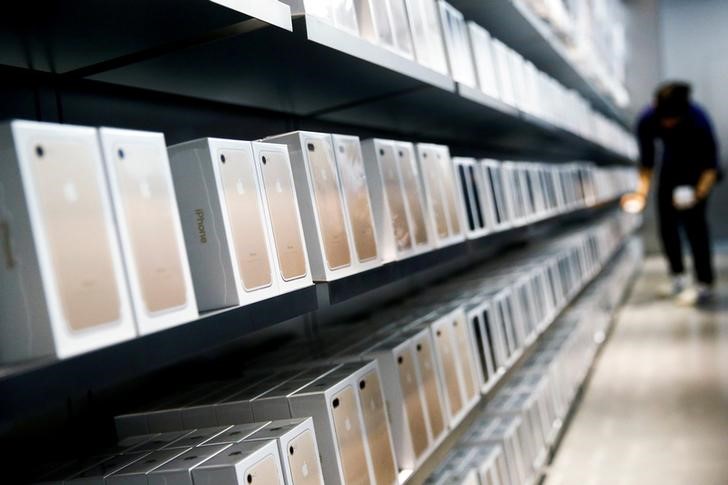Investing.com’s stocks of the week
Investing.com -- Rosenblatt analysts are taking a measured view of the latest iPhone cycle, citing data from Verizon (NYSE:VZ), AT&T (NYSE:T), and T-Mobile's recent earnings reports, which reveal declining smartphone upgrades across U.S. carriers.
According to Rosenblatt, the results highlighted “muted and declining smartphone upgrades in 3Q24” in the U.S., raising questions about the strength of an AI-driven supercycle.
In Q3 2024, AT&T reported a 3.5% postpaid phone upgrade rate, down from 3.9% in the same period last year. Verizon saw its upgrade rate dip to 3.0% from 3.4%, while T-Mobile’s rate slipped slightly from 2.7% to 2.6%.
Despite the declines, Rosenblatt notes that subscriber growth met or exceeded expectations, especially for T-Mobile, which beat estimates.
The analysts add that while some may have anticipated stronger demand, "the obvious read is that there is not a super cycle yet. But that’s OK," Rosenblatt said.
The firm projects modest iPhone revenue growth—3% in the September quarter and 4% in three out of the four quarters of fiscal 2025. A more robust “super cycle” is anticipated to begin in fiscal 2027 with the release of the iPhone 17, driven by advancements in Apple’s AI efforts.
A key focus is expected to be Apple’s rollout of new AI features, beginning with iOS 18.1 on October 28, followed by iOS 18.2.
They explain that the updates will introduce ChatGPT integration, Visual Intelligence, and new imaging features such as Genmoji, which Rosenblatt believes could help drive future demand.
Although early indicators show a slower start, Rosenblatt remains optimistic about Apple’s prospects.
“With faster shipment times early in the release cycle (now coalescing near the iPhone 15 levels) shipment times, a dip in search interest, and lower upgrade rates from US carriers, the data says this iPhone cycle is starting muted,” the analysts wrote, but they expect an AI-driven sales ramp to materialize over the next year, with the stock likely to reflect that optimism in advance.
